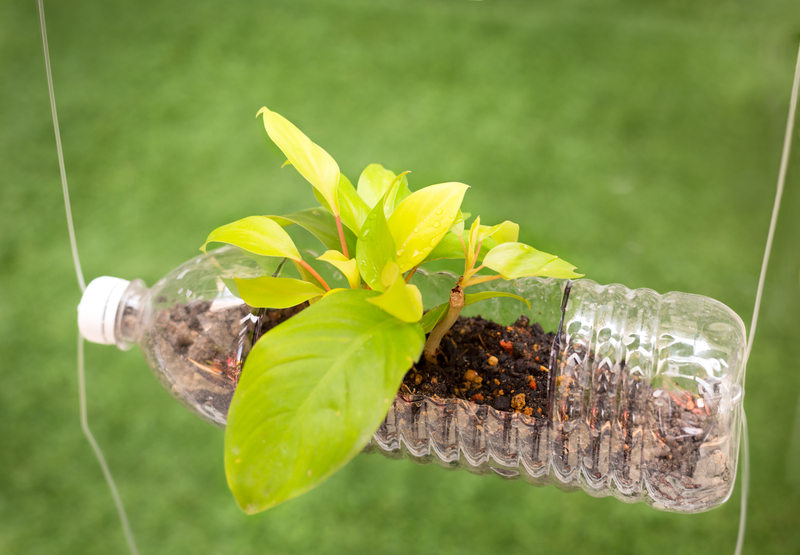Mindful Management of Non-Compostable Debris in the Yard
Posted on 22/05/2025
Keeping a well-maintained yard is not only important for aesthetic purposes, but it also plays a crucial role in environmental sustainability. While composting is often hailed as the ultimate solution for managing yard waste, not all debris can be composted. Non-compostable debris such as plastic, metal, and glass pose a challenge when it comes to sustainable yard management. However, with mindful practices and proper management techniques, these materials can be diverted from landfills and utilized in an environmentally friendly manner. In this article, we will discuss the importance of mindful management of non-compostable debris in the yard.
Understanding Non-Compostable Debris
Non-compostable debris refers to any material that cannot be broken down or decomposed through natural processes. These include items such as plastic bags, bottles, metal cans, and glass containers. While some of these materials may seem harmless, they can have a significant impact on the environment if not managed properly. Plastic and other non-biodegradable materials can take hundreds of years to break down, releasing harmful toxins into the soil and water sources.

The Problem with Disposing Non-Compostable Debris
Improper disposal of non-compostable debris can lead to various environmental issues. When these materials end up in landfills, they take up valuable space and prevent organic waste from decomposing efficiently. This results in the production of methane gas, a potent contributor to climate change. Additionally, non-compostable debris often ends up in oceans and water bodies, causing harm to aquatic life and polluting the waters.
Mindful Management Techniques
The first step towards mindful management of non-compostable debris is to reduce its generation by making conscious choices while purchasing products. Choosing biodegradable or reusable alternatives can significantly decrease the amount of non-compostable waste generated in our yards. Furthermore, it is essential to properly sort and dispose of non-compostable debris. Most municipalities have designated recycling centers where materials like plastic, metal, and glass can be dropped off for proper disposal.
Another way to manage non-compostable debris in the yard is by repurposing these materials. Plastic bottles can be transformed into bird feeders or planters while old metal cans can be used as pots for small plants. Get creative and think outside the box to find new uses for these items instead of throwing them away.
The Pros and Cons
One of the primary benefits of mindful management of non-compostable debris is its positive impact on the environment. By reducing its generation, properly disposing of it, and finding alternative ways to use it, we can significantly decrease the amount of waste that ends up in landfills and water bodies. This helps conserve natural resources and reduces pollution.
However, one of the challenges of managing non-compostable debris is the lack of awareness and convenience. Many people are not aware of the harmful effects of improper disposal, and often it is more convenient to throw things away instead of taking the time to recycle or repurpose them. Therefore, educating ourselves and our communities about the importance of mindful management is crucial in overcoming this challenge.
Tips for Mindful Management
1. Reduce consumption: The best way to manage non-compostable debris is by producing less of it. Before making a purchase, consider if there are biodegradable or reusable alternatives available.
2. Properly sort waste: Familiarize yourself with your local recycling guidelines and ensure that all non-compostable materials are sorted correctly.
3. Repurpose items: Get creative and find new uses for items like plastic bottles, metal cans, and other non-biodegradable materials.
4. Educate others: Spread awareness about mindful management techniques among your family, friends, and community.

Key Takeaways
- Mindful management of non-compostable debris is crucial for environmental sustainability.
- Non-compostable materials can take hundreds of years to decompose, releasing harmful toxins into the environment.
- Reducing consumption, properly sorting waste, and repurposing items are effective ways to manage non-compostable debris.
- Educating ourselves and others about the importance of mindful management is essential in overcoming the challenge of convenience and lack of awareness.
In Conclusion
The proper management of non-compostable debris in our yards is a crucial step towards achieving a more sustainable future. By being mindful of our consumption habits and finding alternative ways to use these materials, we can effectively reduce their impact on the environment. Let us all strive towards responsible waste management practices to create a healthier and greener planet for generations to come.
Latest Posts
Essential Tips for Managing Organic Waste






